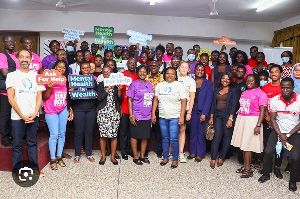Parents of more than 300 kidnapped Nigerian schoolchildren could only wait for news Saturday, as more than 40 others seized elsewhere 10 days ago were freed.
The Government Girls Science Secondary School in Jangebe, northwestern Nigeria was completely deserted following the mass abduction.
Just a few goats broke the silence more than a day after 317 students were kidnapped by gunmen.
Empty metal bunk beds and abandoned clothing remained inside a building visited by AFP journalists, as parents were left wondering if they would see their children again.
It was the country's third school attack in less than three months -- events that have revived traumatic memories of the "Chibok girls" kidnapped by jihadists nearly seven years ago.
After stoning an official convoy that tried to reach the school on Friday, resigned parents waited for news from a rescue mission that was trying to locate the girls.
"It would have been better if my two daughters had died and I buried them, knowing that Allah who gave them to me took them, than having them taken away by bandits," Abubakar Zaki said.
Jangebe resident Bello Gidan-Ruwa told AFP: "No one knows the condition of the girls.
"The government said they are making efforts to rescue the girls but their efforts are not good enough until our girls are safely back," he said.
- 'Trumatised' -
Several hundred kilometres to the south meanwhile, students and teachers from the Kagara school who had been kidnapped in mid-February were freed, and welcomed by regional governor Abubakar Sani Bello.
"We thought they were 42 but actually they were 38," local government spokesman Sani Idris said.
"They are all safe and sound but one of them is hospitalised due to extreme exhaustion, some have mild injuries or are still traumatised," he added.
Following medical examinations, the hostages, including 24 children, would be reunited with their families, the official said.
Northwest and central Nigeria have seen a surge in attacks by heavily armed criminal gangs that raid villages, steal livestock and kill and abduct residents after looting and torching homes.
The attackers have increasingly begun abducting young students from boarding schools.
- 'Blackmail' -
In early December, 344 young boys were seized from a school in Kankara, in the northern state of Katsina, but were released a week later.
Official deny paying a ransom for their release but people who track the situation believe that was the case and warn it would increase attacks in poor regions where security forces are scarce.
Nigerian President Muhamadu Buhari, who has been criticised for failing to deal with the unrest, insisted Friday that he "will not succumb to blackmail by bandits".
- Violence, extreme poverty, absenteeism -
The number of such gangs is not known, but they are attracting more and more young men in regions where more than 80 percent of the population lives in extreme poverty.
The so-called bandits hide in camps in Rugu forest, which straddles Zamfara, Katsina, Kaduna and Niger states. Despite the deployment of troops in Zamfara and Katsina states deadly attacks persist.
"No one has an accurate count of the groups," said Nnamdi Obasi, the International Crisis Group’s (ICG) senior analyst for Nigeria.
"In Zamfara state alone, there are about 40 camps. Some of these groups have hundreds (of fighters) others have a dozen or so."
Some groups in northeastern Nigeria have also established ties with jihadists, observers say.
Since 2011, the violence has killed more than 8,000 people, and forced more than 200,000 to flee, according to an ICG report published in May 2020.
The abductions have increased the number of children who cannot attend school, especially girls.
The regions involved account for the greatest number of unschooled children in the world, the Brussels-based ICG says.
Africa News of Monday, 1 March 2021
Source: africanews.com

















